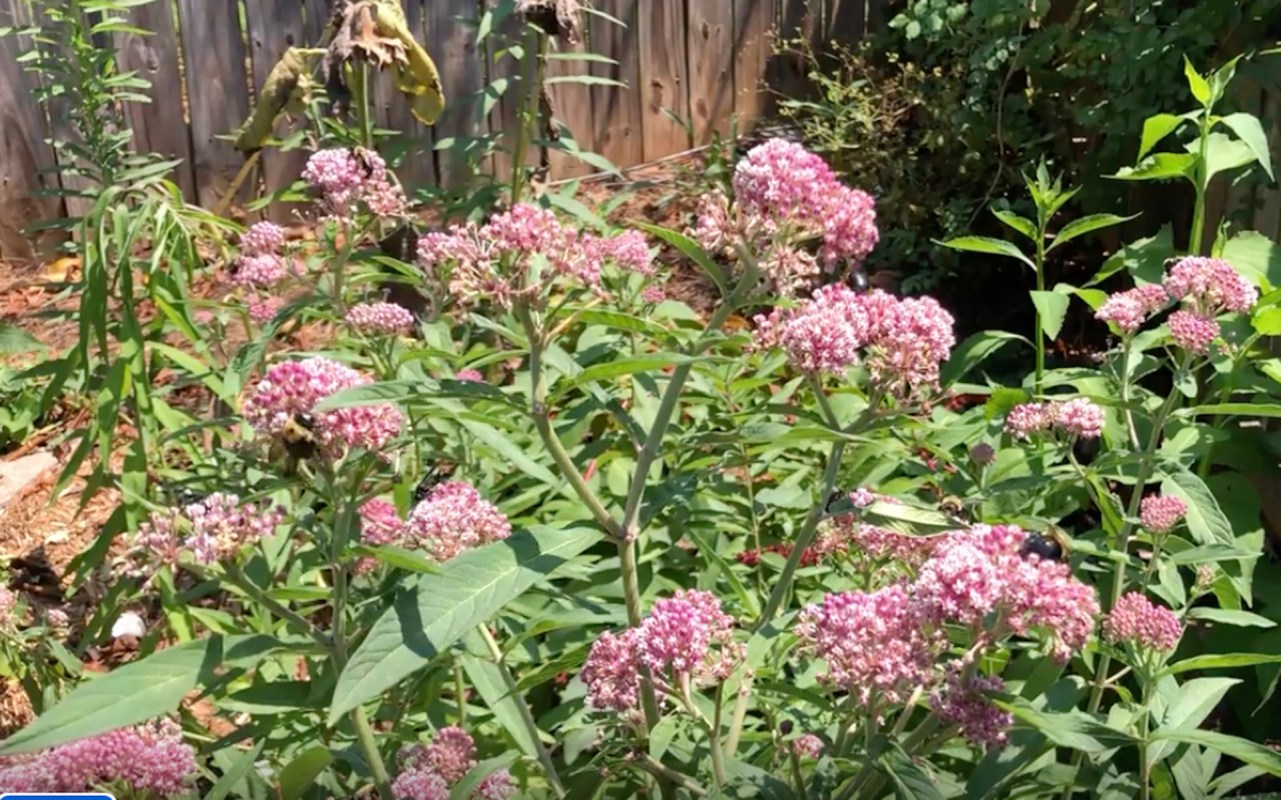A gardener is showing off their garden "completely drenched" in bugs in a video they posted to Reddit. Though it may sound creepy, this is a good thing because it can benefit plants in many ways.
The video was posted in the Reddit community r/NativePlantGardening with the caption,
"My swamp milkweed is completely drenched with bees and wasps."
Bees and wasps have important roles when it comes to the pollination of plants and flowers, meaning they are necessary for the reproduction and survival of many plant species.
They also contribute to the biodiversity of plant populations, which is important since they often need to adapt to changing environmental conditions, like lack of rain, excessive heat, and more.

There are many benefits to having a garden as opposed to a traditional grass lawn. For one, gardens with native plants require much less water, saving you on your water bill while also preserving water resources, which is vital for drought-stricken areas.
Aside from being an aesthetically pleasing addition to your yard, gardens can be used to grow your own vegetables and fruits, which can save you money and time in the long run, since homegrown produce is generally much more affordable than that purchased from the supermarket.
Simply walking into your garden to pick your dinner from the soil will save you that trip to the store and save on gasoline if you usually have to drive there.
Home gardens also function as carbon sinks, meaning they help remove the harmful plant-warming pollutants from the atmosphere, which is quite an asset considering the effects these gases are having on our climate.
"Mine is so so alive too! Every time I go outside she's got monarchs, bees, and wasps on every flower cluster. It's absolutely magical!" one commenter expressed.
"That was mine a few weeks ago. Even got a few monarch caterpillars. I've been letting mine spread its seed," another added.
An apparent fan of caterpillars wrote, "Mine have flower buds but hasn't bloomed yet. And it's way tall and bushy, been waiting for a caterpillar infestation."
Join our free newsletter for easy tips to save more, waste less, and help yourself while helping the planet.









